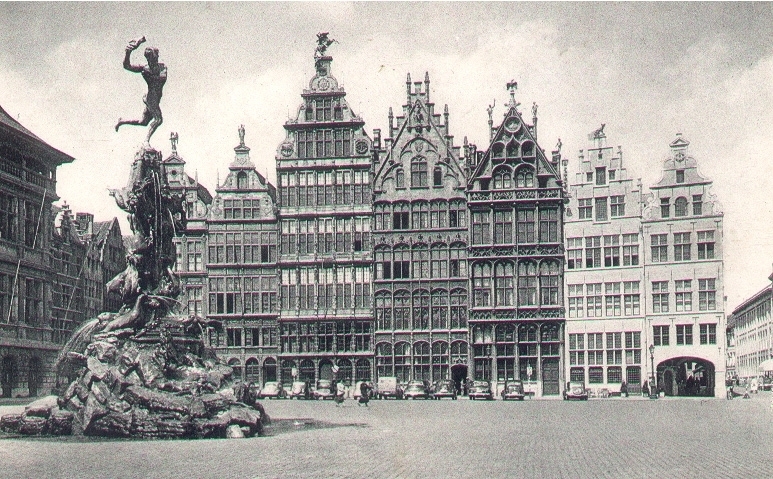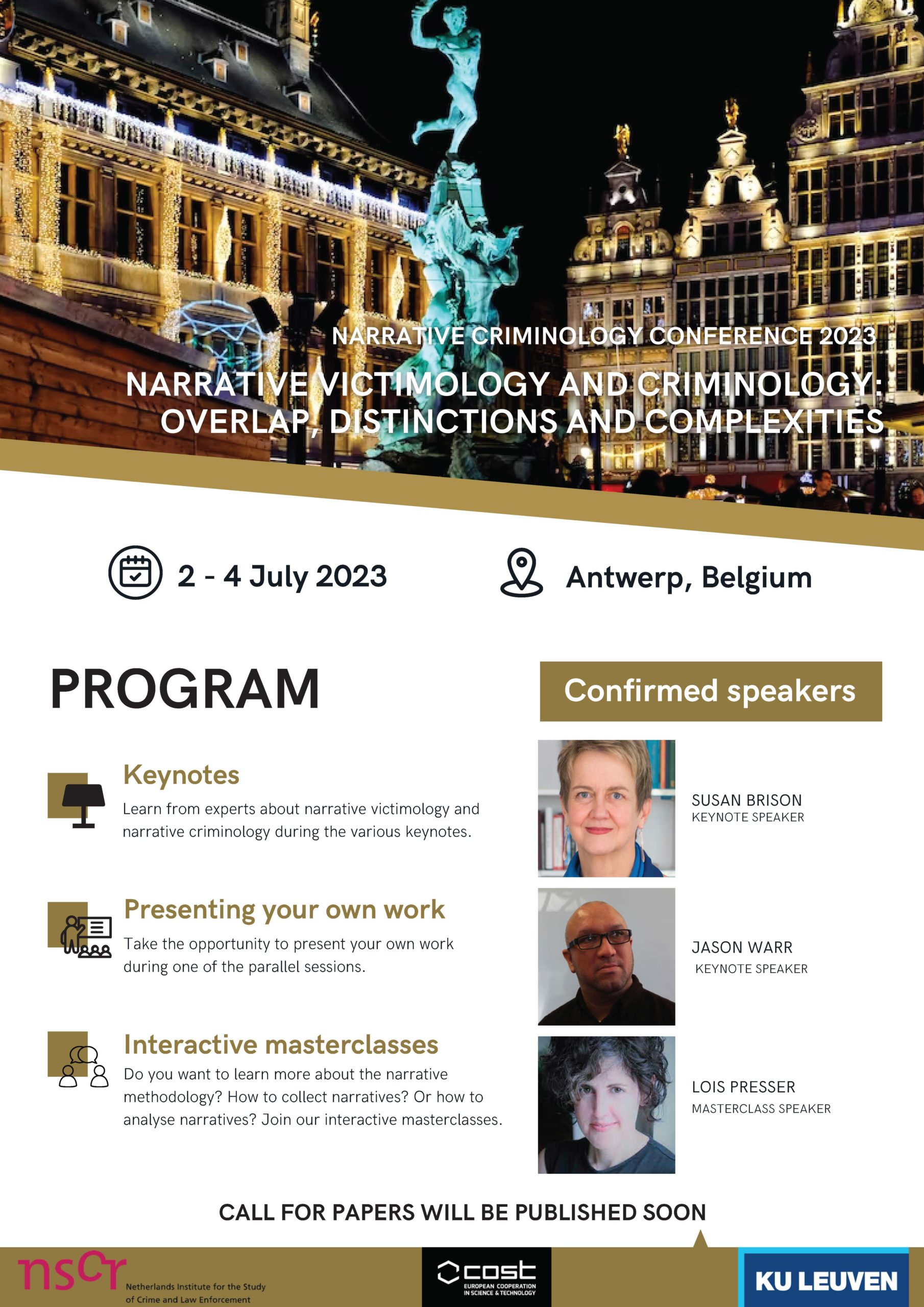2 – 4 juli | Conferentie Narratieve Victimologie en Criminologie

Deze tekst en de conferentie zijn beide in het Engels.
Humans are storytelling animals, victims and offenders of crime no different than anyone else. Narrative criminology aims to explain crime and other types of harm as a function of stories that people, as individuals and as groups, tell about the world and themselves in the world. Narrative victimology seeks to do the same regarding people’s experiences of being harmed and wronged by others. The research domains might seem to differ in focus: narrative criminology often examines the causal role of stories, the role stories play in harm. Narrative victimology might be more prone to consider the storied consequences of harm, for instance the impact of victimization on life stories. However, there is much overlap as well: victim and offender are hardly mutually exclusive categories, and themes of victimization often resound in offender narratives. There are many similarities between the stories of victimization following severe crime, and those of being incarcerated as a consequence. Such overlaps serve the complexities of doing work in narrative criminology and victimology. To name just a few: how to do justice fully to the lived reality of victims and offenders? How to empathize with subjects’ sense of victimization when they have been convicted of abhorrent acts? How to put into words experiences that subjects cannot adequately describe?
Narrative Victimology and Criminology: Overlap, Distinctions and Complexities
We look forward to three days of discussion of these and many other issues in the plenary sessions, the masterclasses, and the parallel sessions. We hope to inspire and gather researchers – criminologists and others – interested in the role of stories and language for crime, harm, and victimization. We hope to stimulate novel theoretical perspectives and original empirical analyses. Multidisciplinary cooperation is important; we seek to involve colleagues from criminology, sociology, anthropology, psychology, linguistics, political science, philosophy, history, and law in a meaningful exchange across national and disciplinary boundaries.
Registration
Registration fee before 16 May:
- (PhD) students 140,-
- Other scholars and professionals 180,-
Registration fee from 16 May:
- (PhD) students 160,-
- Other scholars and professionals 210,-
The registration fees include admission to all the conference sessions, the receptions on 2 July and 4 July, as well as the coffee breaks and lunches on all days. Please register here.
Practical information
Please note that the conference will take place in-person. We cannot offer online participation. More information about the conference can be found here. The website will be continuously updated with information about the plenary speakers and masterclass instructors as well as any practical information that we need to share with you.

Deel dit artikel
Actuele berichten

